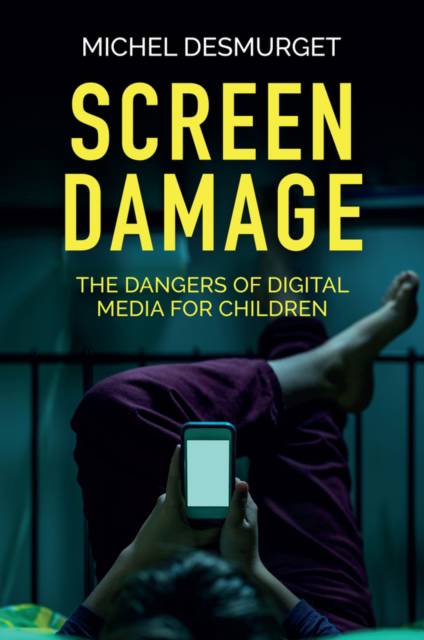
- Afhalen na 1 uur in een winkel met voorraad
- Gratis thuislevering in België
- Ruim aanbod met 7 miljoen producten
- Afhalen na 1 uur in een winkel met voorraad
- Gratis thuislevering in België
- Ruim aanbod met 7 miljoen producten
Omschrijving
All forms of recreational digital consumption - whether on smartphones, tablets, game consoles or TVs - have skyrocketed in the younger generations. From the age of 2, children in the West clock up more than 2.5 hours of screen time a day; by the time they reach 13, it's more than 7 hours a day. Added up over the first 18 years of life, this is the equivalent of almost 30 school years, or 15 years of full-time employment.
Most media experts do not seem overly concerned about this situation: children are adaptable, they say, they are 'digital natives', their brains have changed and screens make them smarter. But other specialists - including some paediatricians, psychiatrists, teachers and speech therapists - dispute these claims, and many parents worry about the long-term consequences of their children's intensive exposure to screens.
Michel Desmurget, a leading neuroscientist, has carefully weighed up the scientific evidence concerning the impact of the digital activities of our children and adolescents, and his assessment does not make for happy reading: he shows that these activities have significant detrimental consequences in terms of the health, behaviour and intellectual abilities of young people, and strongly affect their academic outcomes.
A wake-up call for anyone concerned about the long-term impacts of our children's over-exposure to screens.
Also available as an audiobook.
Specificaties
Betrokkenen
- Auteur(s):
- Uitgeverij:
Inhoud
- Aantal bladzijden:
- 350
- Taal:
- Engels
Eigenschappen
- Productcode (EAN):
- 9781509546398
- Verschijningsdatum:
- 19/12/2022
- Uitvoering:
- Hardcover
- Formaat:
- Genaaid
- Afmetingen:
- 154 mm x 230 mm
- Gewicht:
- 557 g

Alleen bij Standaard Boekhandel
Beoordelingen
We publiceren alleen reviews die voldoen aan de voorwaarden voor reviews. Bekijk onze voorwaarden voor reviews.












